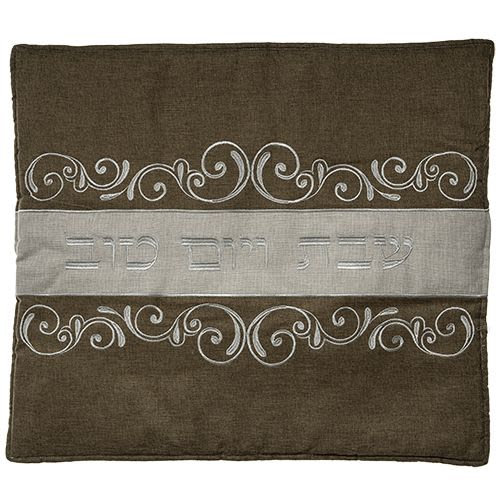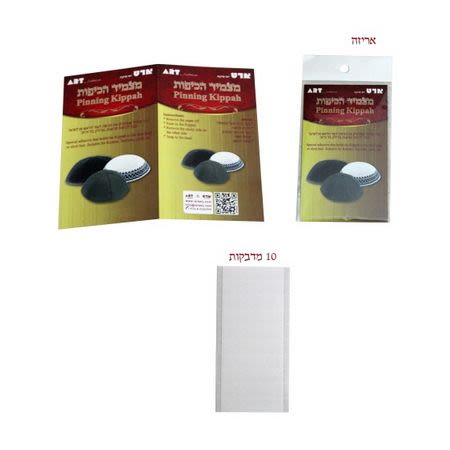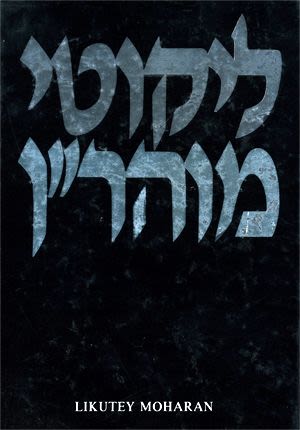
Myrtle in the Wilderness
Rebbe Nachman especially loved his daughter Sarki (nickname for Sarah), whom he called a “myrtle in the wilderness with a pleasant fragrance.”

Women in Breslev, Part 3
Once the Rebbe wrote a letter to his daughter Sarah expressing his great love and affection, and saying how he longed to have her at his table, so that he could gladden himself with her company each day, and receive wisdom and fear of Heaven from her words. He concluded, “You are like a myrtle in the wilderness that has no one to appreciate its pleasant fragrance”.
A number of the Rebbe’s followers were present when Sarah received this letter. One of than told Rabbi Noson that after she read it, she broke down and began to cry in front of them, saying, “I must have fallen to a very low level for my father to praise me so much to my face.” For the Rebbe would praise a person to his face if he felt that the person had fallen from his previous level and needed encouragement (Chayei Moharan 581, 582).
* * *
Sarah was often ill. Her suffering deeply pained the Rebbe, who often spoke of it. Once the Rebbe came to visit, and found her greatly distressed by a toothache. “Even if it is difficult, you must force yourself to be happy,” the Rebbe told her. Then he explained that by vividly imagining being joyous, she could come to experience true joy — so much so that she would wish to dance. Through this, she would be cured. Sarah took her father’s advice to heart. Closing the shutters of her house, she began to dance. Before long, the pain had disappeared (Until the Moshiach, p. 334).
* * *
Another time when Sarah was ill, Rebbe Nachman suggested that she picture herself as better off now than before she fell sick. This, too, seemed impossible to Sarah, whose anguish gave her no peace. Still, the Rebbe asked her to follow his instructions. “The power of thought is very great,” he explained. “By thinking positively, you can actually turn your situation to the good” (also cf. Sichos HaRan 62, 74) (Until the Moshiach, p. 334).
* * *
On yet another occasion, the Rebbe came to visit Sarah, only to find her bedridden and in agony. Rebbe Nachman listened intently to the details of her sickness, sharing her grief. Then he fell asleep. His great-grandfather, the Baal Shem Tov, appeared to him in a dream and advised him not to worry. He quoted the verse, “Great deliverance He gives to His king, and shows steadfast love to His anointed one — to David and his seed forever” (Psalms 18:51). The Rebbe understood this to mean that Sarah’s illness could be cured by telling her a story about an act of deliverance that G-d had performed for a tzaddik. Upon awakening, the Rebbe sat beside his daughter, and told an awesome story about the Maharsha (Rabbi Shmuel Eliezer Eidels, 1555-1622). As soon as he finished the story, Sarah arose from her bed, having recovered completely. Subsequently, she told the same story to other sick people, and they, too, returned to health (also cf. Likutei Moharan I:234; Sichos HaRan 138) (Until the Moshiach, p. 334).
* * *
Sarah’s son Yisrael was born while Rebbe Nachman was visiting Kremenchug. The Rebbe waited for several weeks until his daughter gave birth. His solemn demeanor throughout this time betrayed his constant anxiety for the well-being of his daughter and the unborn child. However, after the birth he became extremely happy, asking that all the lights be lit and a punch of wine and honey be served. On the eighth day, the child was circumcised, and the Rebbe remained elated all day long. It pleased him that several people mentioned to him that the child had the same name as the Baal Shem Tov: Yisrael ben Sarah (Yemei Moharnat 17; Chayei Moharan 151).
* * *
When the Rebbe was severely ill, he asked Sarah’s three or four year old son, Yisrael, to pray for him. The little boy replied, “Give me your watch, and I will pray for you!” At this, the Rebbe said, “You see, he’s already a Rebbe, because he tells me to give him something in order for him to pray!” The Rebbe then gave him his watch. The little boy took it, went aside, and began to cry, “G-d! G-d! Let my Zeideh (grandfather) be well!” The people standing nearby found this humorous. However, the Rebbe said, “This is how we must entreat G-d. What other way is there to pray?” That is, we must pray to G-d with the greatest simplicity, like a child before his father, or a man speaking to his best friend (Chayei Moharan 439).
* * *
Rebbe Nachman said: “As to what will become of me, I have no idea. But this much I have achieved with the Almighty: our righteous Mashiach will be one of my descendants.” The Rebbe said this publicly. He asked that we honor and respect his daughters, because they were “precious trees that would give forth rare and goodly fruits.” He also said that he had taken his children from the World of Atzilus (Divine Emanation) — the highest spiritual level (Chayei Moharan 279; Yemei Moharnat 17).
* * *
The Rebbe’s attendant, Reb Shimon, came to ask his master to intercede in Heaven for his infant son, who was deathly ill. Rebbe Nachman, however, did not respond. Forlorn and without hope, Reb Shimon returned hone. His wife understood the implications of the Rebbe’s silence. Yet instead of yielding to despair, she sat at the infant’s crib throughout the night, praying tearfully for the life of her child.
The next morning, when the Rebbe saw Reb Shimon, he exclaimed: “Look at the great power of prayer: Last night the decree had been sealed. But because of your wife’s prayers, not only will your son recover, but he has been granted long life.” And, indeed, Reb Shimon’s son lived to be nearly one hundred years old (Avanehah Barzel 60, p. 39; also cf. Siach Sarfei Kodesh 2, 1-100).
* * *
A follower of Rebbe Nachman once asked how he might strengthen his emunah (faith). The Rebbe replied, “We can learn to have emunah from the women” (oral tradition heard from R. Nasan Maimon).
(Reprinted with kind permission of http://www.nachalnovea.com/)













Tell us what you think!
Thank you for your comment!
It will be published after approval by the Editor.